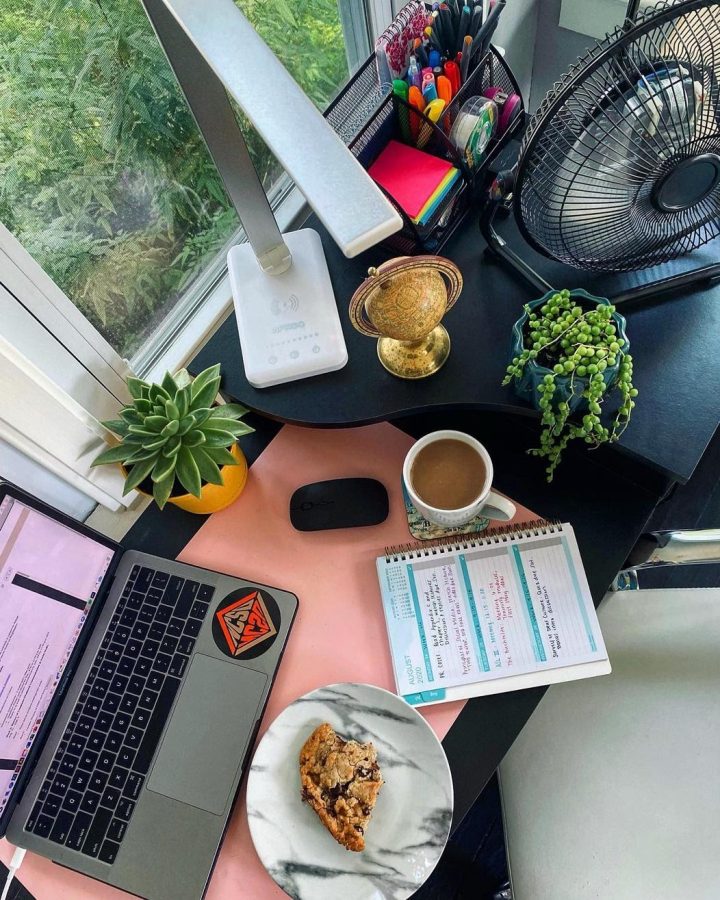How is Online Education During a Pandemic Different for Students?
As many classes have switched to online instruction, are students missing the structure and socialization required to succeed?
Students’ desk setup look very different due to learning at home and COVID-19.
September 21, 2020
In the midst of the 2019 Novel Coronavirus (COVID-19) pandemic, many college students have found safety and peace of mind in having the option to work and study in the comfort of their own homes.
A cup of coffee, pajamas and a Zoom meeting may not have been how students envisioned their future in higher education. Yet, more than halfway through 2020, this image has become a reality for many.
Although being able to sleep in or avoid the commute to campus may be a positive outcome, one question still remains: what exactly are students missing out on in the age of online education?
In June, The University of Akron announced they would offer a mixture of in-person, hybrid and online classes for the Fall 2020 semester to limit the number of students on campus in an effort to prevent the spread of COVID-19.
This change led to many students logging into their MyAkron accounts and finding most or all of their classes had gone virtual.
Stephanie Hylton, a graduate student, said she has remained positive through this change, despite all of her classes being completely online. However, she also misses some of the social aspects of in-person learning.
“I feel like I am missing out on the deeply needed professor interaction in my master program, but my professors are doing a good job of still trying to interact,” Hylton said. “I also feel like I’m missing the cohort of classmates I would normally have, but I am pleasantly surprised with how everyone is adjusting, especially when it comes to group work.”
As the pandemic continues and as people adapt to this new way of life, many students’ mental health has been impacted by this shift to online learning in relation to their mental health.
Isolation, cancelled events, closed businesses, layoffs and more can lead to students struggling to find motivation, balance and structure while learning from home. Students have sought out in-person classes for fear of not being able to fully succeed virtually.
Usually senior Ashleigh Kanengeiser, an English major, takes one online course with the rest in-person as a way to balance work and academics, but this semester she is struggling between her three online classes and one in-person course.
Kanengeiser commutes to campus once a week for a single class, but to her, it’s worth it.
“I like being able to go, even for one class. It gives me a sense of normalcy. What I’m missing most about being on campus is the ability to develop relationships with professors,” Kanengeiser said. “Last semester, I would typically come in early and stay late to review topics with my French professor.”
The security of working from home may give a sense of safety to some, while others are struggling to find a balance or may be left feeling a weight on their mental health.
In these unprecedented times, the most important thing we can do as students can do is utilize the resources available virtually. Tutoring, Adult Focus, Career Services, counseling, financial aid help and more are all available online.











Amelia • Jul 29, 2021 at 1:34 PM
Pandemic have changed everyone’s life all over the world. Education is very important part of future, but due to pandemic online education is only one option for school and collage and university for all countries. and there are different merits and demerits of this online education for different students. For more merits you can check this article – https://globalbusinessfeed.com/online-education-is-better-than-traditional-here-are-the-reasons